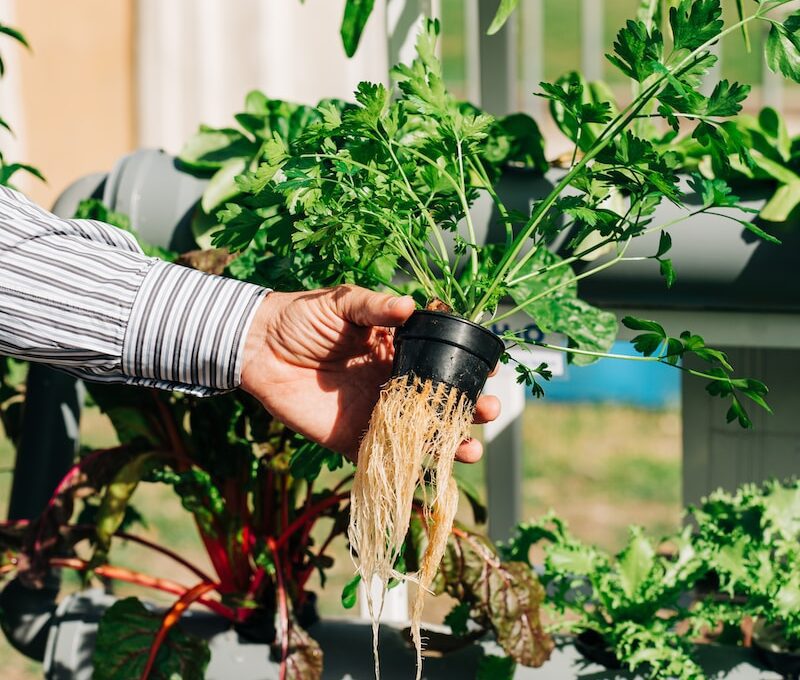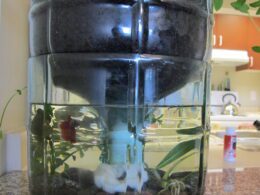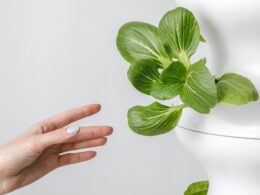Are you curious about the benefits of hydroponic gardening and whether plants grow faster in this method? Hydroponic gardening is a popular and innovative way to grow plants without soil. Instead, hydroponic systems use nutrient-rich water to grow plants.
This method has become increasingly popular due to its potential to produce higher yields in a controlled environment while using less water and space than traditional soil gardening methods. If you’re interested in growing your own vegetables or herbs, hydroponic gardening may be a great option for you.
In this article, we’ll explore the science behind hydroponic gardening, factors that can affect plant growth in hydroponics, and compare growth rates between traditional soil gardening and hydroponics. We’ll also discuss the advantages and disadvantages of hydroponic gardening and provide tips for successful hydroponic gardening to help you get started on your own hydroponic garden.
The Science Behind Hydroponics
Discovering the science behind hydroponic cultivation can offer insight into the fascinating world of urban agriculture.
Hydroponics is a method of growing plants that involves the use of nutrient-rich water instead of soil. Hydroponic nutrient solutions are carefully formulated to provide all the necessary nutrients that plants need to grow and thrive.
This method of farming is becoming increasingly popular as it allows for year-round crop production and higher yields. In hydroponic farming, plant uptake mechanisms work differently than in traditional soil-based farming.
Plants in hydroponic systems can take up nutrients more easily and efficiently from the water, leading to faster growth rates. This is because the nutrients in the water are readily available to the plant, and there is no competition from other microorganisms for the nutrients.
Additionally, the absence of soil-borne pests and diseases reduces the need for pesticides and herbicides in hydroponic farming, making it a safer and more sustainable option.
Overall, the science behind hydroponics shows that it is a highly effective method of growing plants. The controlled environment allows for precise nutrient management, leading to faster growth rates and higher yields.
With the increasing demand for fresh produce in urban areas and the need for sustainable agriculture practices, hydroponics offers a promising solution for the future of farming.
Factors That Can Affect Plant Growth in Hydroponics
You’ll want to consider several factors that can impact the growth of your hydroponic plants. One of the most important factors is light intensity. Plants need light to grow, and insufficient light can stunt their growth. On the other hand, too much light can also be harmful. Be sure to adjust the distance between your plants and the light source to ensure that they’re getting the right amount of light.
Another factor that affects plant growth in hydroponics is nutrient concentration. Plants need a balanced mix of nutrients to grow properly. Too much of one nutrient can lead to toxicity, while too little of another can result in deficiency. It’s important to monitor the nutrient concentration in your hydroponic system regularly and make adjustments as needed to ensure that your plants are getting the right nutrients in the right amounts.
Other factors that can impact plant growth in hydroponics include pH levels, temperature, and humidity. Each plant has different requirements for these factors, so it’s important to research the specific needs of the plants you’re growing.
By considering and adjusting these factors, you can create the ideal growing environment for your hydroponic plants and help them grow faster and healthier.
Comparing Growth Rates in Hydroponics and Soil Gardening
Comparing growth rates in hydroponics and soil gardening can help you understand which method is better for your plants. In hydroponics, plants grow faster because they receive the perfect amount of hydroponic nutrients they need to thrive.
In soil gardening, plants can grow slower because the soil may not have all the necessary nutrients for optimal growth. Hydroponics allows for greater control over the nutrients plants receive, which can result in faster growth rates.
Another factor that affects plant growth rates is light intensity. In hydroponics, growers can control the amount of light plants receive, which can lead to faster growth rates. In soil gardening, plants are more dependent on natural light, which can vary depending on the weather.
By providing consistent, high-intensity light in hydroponics, plants can grow faster and produce higher yields.
Overall, comparing growth rates in hydroponics and soil gardening shows that hydroponics can result in faster plant growth. With greater control over nutrient levels and light intensity, hydroponics can provide the perfect growing conditions for plants. If you’re looking to optimize plant growth rates, hydroponics may be the way to go.
Advantages and Disadvantages of Hydroponics
The advantages and disadvantages of hydroponics can help you decide if this growing method is right for your gardening needs. Hydroponics is a form of vertical farming that involves growing plants in nutrient-rich water, without the use of soil.
One major advantage is that hydroponics uses less water compared to traditional soil gardening. This makes it a sustainable agriculture method that can save you money on your water bill in the long run.
Another advantage of hydroponics is that it allows you to control the environment in which your plants grow. You can adjust the pH levels, nutrient levels, and temperature to optimize growth. This means that you can grow crops all year round, regardless of the weather conditions outside. Additionally, hydroponics can produce higher yields per square foot compared to soil gardening, making it a great option for those with limited space.
However, there are also some disadvantages to hydroponics. One drawback is that it can be more expensive to set up compared to soil gardening. You have to purchase equipment such as pumps, grow lights, and containers. Additionally, if the system is not properly maintained, it can be prone to problems such as algae growth and nutrient imbalances.
It is important to weigh the advantages and disadvantages of hydroponics before deciding if it is the right growing method for you.
Tips for Successful Hydroponic Gardening
If you’re interested in trying out hydroponic gardening, here are some helpful tips to ensure your plants thrive in their nutrient-rich water environment.
First, it’s important to understand the role of hydroponic nutrients. Unlike traditional soil gardening, hydroponic plants rely on nutrient-rich water to grow. And because water alone doesn’t contain all the necessary nutrients, you’ll need to add them to your hydroponic system. Be sure to choose a nutrient solution that’s appropriate for the type of plants you’re growing, and follow the instructions carefully.
Another important factor to consider when growing hydroponic plants is pH management. The pH level of your nutrient solution can greatly impact your plants’ growth and overall health. Most plants thrive in a pH range of 5.5 to 6.5, but it’s important to check the specific pH requirements for your plants. You can adjust the pH level of your nutrient solution using pH up or pH down solutions, but be sure to make small adjustments and monitor the pH level regularly to avoid over-correcting.
Finally, to ensure successful hydroponic gardening, it’s important to maintain a clean and well-maintained system. Regularly check for any clogs or buildup in your system, and keep your water and nutrient solution fresh and free from contaminants. Consider investing in a water filtration system to remove any impurities, and be sure to regularly sanitize your equipment to prevent the growth of harmful bacteria.
By following these tips and properly managing your hydroponic nutrients and pH level, you’ll be on your way to a thriving hydroponic garden.
Frequently Asked Questions
What is the cost of setting up a hydroponic system?
Looking to set up a hydroponic system? Hydroponic system benefits are numerous, and the cost-effective hydroponics can be a great way to save money while growing your own produce.
The initial cost of setting up a hydroponic system can vary depending on the size and complexity of the system, but with proper maintenance and care, these systems can last for years. With the ability to control the environment and nutrients, hydroponics can produce faster and higher yields than traditional soil-based methods.
Plus, with no soil to till or weeds to pull, hydroponics can be a safer and more efficient way to grow your own food. So if you’re looking for a sustainable and cost-effective way to grow your own produce, a hydroponic system may be the perfect solution.
Can hydroponics be used for growing all types of plants?
Hydroponics is a great option for indoor gardening because it offers many benefits. It uses less water than traditional soil-based methods, making it more sustainable. Additionally, hydroponics allows you to control the environment in which your plants grow, which means you can tailor the conditions to suit the specific needs of the plants you’re growing.
However, using hydroponics for large scale agriculture poses some challenges. It can be expensive to set up and maintain, and you need to be careful to avoid contamination and disease.
That said, if you’re looking to grow plants indoors, hydroponics is definitely worth considering.
How often do I need to change the nutrient solution in my hydroponic system?
To ensure your hydroponic plants thrive, it’s important to maintain optimal nutrient levels in your system. This means monitoring and adjusting the nutrient solution regularly, typically every two weeks.
If you notice any signs of nutrient imbalances, such as yellowing leaves or stunted growth, troubleshoot the issue by testing and adjusting pH levels, checking for clogged or malfunctioning pumps, and adjusting nutrient ratios.
By taking a proactive approach to nutrient management, you can ensure that your plants receive the necessary nutrients for healthy growth and avoid any potential issues that could harm your crop.
What is the lifespan of a hydroponic system?
When it comes to hydroponic systems, knowing the lifespan is important. Regular cleaning and monitoring of nutrient levels are necessary to ensure your plants grow healthy and strong. The benefits of hydroponics in urban areas are many, including the ability to grow plants in small spaces and without soil. However, if you don’t take care of your system, it won’t last long.
With proper maintenance, your hydroponic system can last for years, providing you with fresh produce and a sense of accomplishment.
Are there any environmental concerns associated with hydroponic gardening?
If you’re considering hydroponic gardening, it’s important to be aware of the potential environmental impact and sustainability concerns. Hydroponics can be a more efficient way to grow plants, but the equipment used to set up these systems can have a significant carbon footprint.
Additionally, the nutrient solutions used can contain chemicals that may be harmful to the environment if not disposed of properly. It’s important to weigh the benefits of hydroponics against these potential drawbacks and take steps to minimize your environmental impact. For example, you can use organic nutrient solutions and responsibly dispose of waste.
Conclusion
Congratulations! You’ve now learned about the science behind hydroponics and the factors that can affect plant growth in this system.
You’ve also compared growth rates in hydroponics and soil gardening and examined the advantages and disadvantages of hydroponics.
Finally, you’ve received some tips for successful hydroponic gardening.
In conclusion, hydroponics can offer faster plant growth and higher yields than traditional soil gardening, but it requires more attention to detail and a higher initial investment.
With proper care and maintenance, hydroponic gardening can be a rewarding and efficient way to grow your own fresh produce.
So, why not give it a try and see the results for yourself? Happy gardening!









